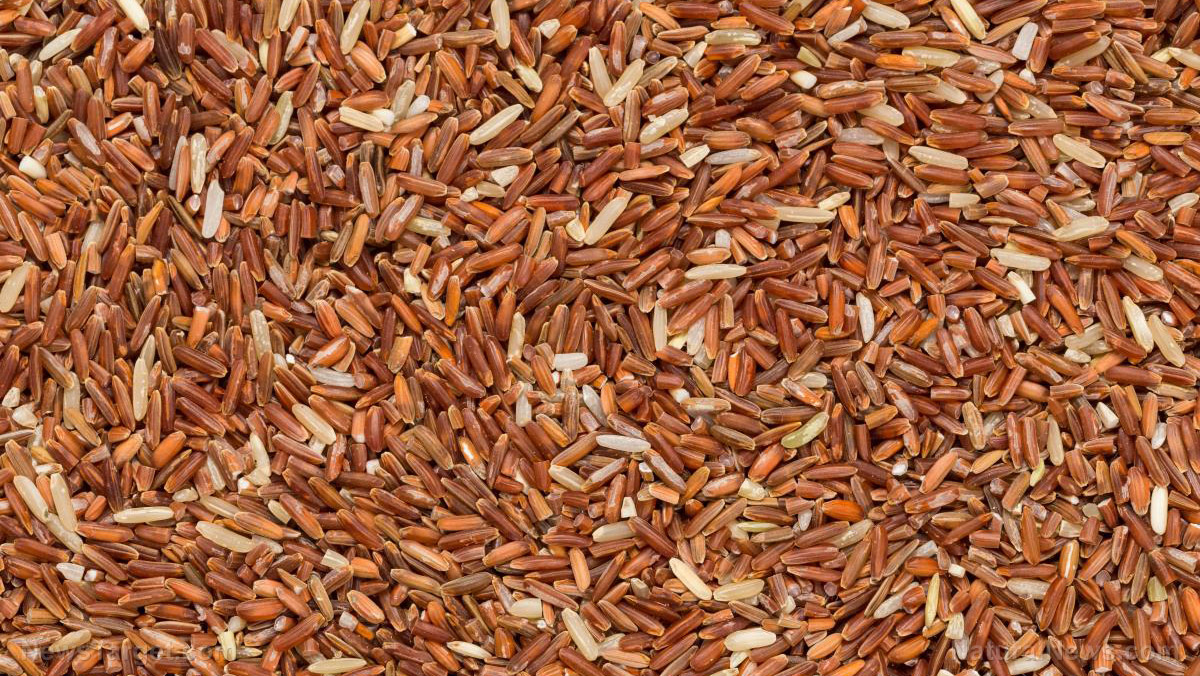A form of vitamin E derived from annato can lessen your risk of bone loss due to diabetes
11/30/2018 / By Michelle Simmons

Studies have shown that tocotrienols may help inhibit bone loss and regulate blood sugar levels. The tocotrienols used in the studies were derived from the red-orange tropical fruit known as annatto.
The first study, which was published in the journal Bone and conducted by Universiti Kebangsaan Malaysia researchers, revealed that mice supplemented with annatto tocotrienols displayed normal conditions for both anabolism and bone mineral density associated with metabolic syndrome. This was achieved through the regulation of hormone levels and inflammatory response.
The second study, which was published in the journal Scientific Reports and conducted by researchers at Texas Tech University, found that annatto tocotrienol in mice positively affected glucose homeostasis, bone turnover biomarkers, bone volume, and bone microarchitecture.
The studies both examined mice induced with metabolic syndrome and osteoporosis by feeding them with a high-carbohydrate, high-fat diet. Both studies also compared biomarker changes between mice given just a standard diet and mice treated with tocotrienols.
Researchers of the Malaysian study used doses that correspond to human doses of 680 milligrams (mg) and 1,130 mg per day. Results of their study showed that mice supplemented with tocotrienols exhibited improvements in metabolic syndrome parameters such as blood pressure, fasting blood glucose, triglycerides, and total cholesterol compared to mice given with tocotrienol-stripped palm oil, a naturally rich source of tocotrienol.
On the other hand, researchers of the Texas study compared different doses of tocotrienol with metformin, an anti-diabetic prescription drug. Their study revealed that the higher dose of tocotrienol was more effective than metformin in increasing bone formation and trabecular volume and reducing bone resorption and trabecular separation. The effects of the lower dose of tocotrienol were comparable to metformin in terms of bone improvements.
The findings of these independent studies suggest that tocotrienol can address metabolic and bone health at the same time. These findings can be beneficial to people with diabetes, as they are at a greater risk of suffering from various bone and joint disorders.
New research supports tocotrienol’s metabolic function benefit
A new study published in the journal Nutrients supports the findings of the Malaysian and Texas studies on the beneficial effect of tocotrienol on metabolic function. For this study, researchers at Monash University Malaysia recruited 45 Type 2 diabetes patients aged 19 to 80 years who went for regular follow-ups at the Monash University Clinical Research in Malaysia.
The team divided the participants into two groups: a treatment and a placebo group. The treatment group received 400 mg a day of a tocotrienol-rich vitamin E, which is a relatively high dosage for the nutrient. All participants took their assigned supplement twice a day for eight weeks. The researchers evaluated biological markers related to metabolic syndrome at the start and at the end of the treatment period.
The results showed that daily supplementation of tocotrienol improved biological markers related to metabolic syndrome in diabetic patients. In particular, tocotrienol supplementation significantly reduced serum creatinine compared to placebo. This suggested that tocotrienol may be beneficial in treating diabetes-related kidney damage, also referred to as nephropathy. (Related: Vitamin E found to have bone health benefits: Research finds it improves bone density in postmenopausal women.)
More on tocotrienols
Tocotrienols are a less common form of vitamin E, which is an antioxidant that helps neutralize free radicals. Compared to tocopherols, tocotrienols are less commonly found in people’s diets and some vitamin E supplements consist exclusively of tocopherols. Tocotrienols are mainly derived from rice, palm, and annatto.
This form of vitamin E has been reported to protect the brain, support heart health, reduce the risk of cancer, enhance digestive health, and improve hair and skin health.
Read more news stories and studies on the benefits of vitamin E supplements by going to SupplementsReport.com.
Sources include:
Tagged Under: alternative medicine, Annatto, blood sugar, bone loss, diabetes, metabolic syndrome, natural medicine, nutrients, osteoporosis, supplements, tocotrienol, Type 2 Diabetes, vitamin E




















